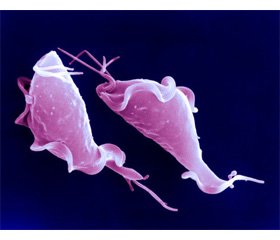Журнал «Медицина неотложных состояний» 3 (66) 2015
Вернуться к номеру
Tactics of treatment of acute infectious inflammatory postoperative complications caused by Trichomonas vaginalis
Авторы: V. G. Karpenko, N. M. Pasiyeshvili - Kharkiv Medical Academy of Post-graduate Education
Рубрики: Медицина неотложных состояний
Разделы: Клинические исследования
Версия для печати
postoperative complications, pelvioperitonitis, trichomoniasis, treatment of complications, gynecology.
Introduction
The problem of infectious postoperative complications in gynecological practice is very important today, especially when we are talking about planned surgery.In modern conditions the etiology of almost all infectious diseases of the genital organs is characterized by the existence of mixed flora.It is necessary to consider that fact that the most often spread of the genital infection goes the ascending way, therefore the main source of the risk of postoperative complications are chronic colpitises, vulvovaginitises, endometritises and salpingitises caused by chlamydia, Trichomonas vaginalis, gonorrhea and other opportunistic flora. Trichomoniasis is one of the most common infections, sexually transmitted diseases caused by one-celled protozoa parasite Trichomonas vaginalis. There are about 170 million people in the world, who are suffered from trichomoniasis. [3; 5].In the epidemiological relation the serious problem is represented by patients with slow inflammatory processes (trichomonad carriers), which occur in 40-50% of patients with mixed urogenital infection.
The goal of the work:
To analyze the character and frequency of complications of infectious-inflammatory process caused by trichomonas infection from a postsurgical wound during planned gynecologic operations and to offer the effective complex therapy of such patients in the postoperative period.
Materials and methods:
We analyzed 582 case histories and the results of complex clinical and laboratory examination and treatment of patients who underwent planned gynecological surgery by abdominal and vaginal approaches for the last three years.So, from the 582 operations the planned ones are totaling193 (33%), which are included metrosteresis by the way of laparotomy, operations about uterine leiomyoma are totaling 107 (55% from the planned ones), surgeries by the vaginal approach are totaling 13 (6.7%), plastic surgery in occasion of colpoptosis and prolapse of uterus are totaling 8 (4.1%) and 65 (33.7%), laparotomy in occasion of tumours of uterine annexes. The average age of the patients was 46,4±3,3 years.
Results and their discussion:
As a result of the analysis of case histories it is established that the frequency of incidence of suppurative complications in postoperative period were totaling 7 cases (3.6%) from all planned operations and 6.4% from laparotomy in occasion of metrosteresis. This indicator is regarded as unsatisfactory for a planned surgery.Based on clinical data and results of clinical and laboratory examination there were diagnosticated: Сondition after laparotomy, metrosteresis. Purulent peripulpitis. Pelvioperitonitis.We have developed and implemented in work of the gynecological department the methodology of case management of such patients and the therapeutic regimen in postoperative period caused by trichomonas.
Conclusions
Treatment of patients with the postoperative infectious and inflammatory complications, caused byTrichomonas vaginalis, to whom planned gynecologic operations according to the offered therapeutic regimen were carried out, have shown positive results.The given regiment can be recommended for using in obstetric-gynecologic clinics in different regions.For all patients in the postoperative period it is also recommended to include in the standard fluid therapy regiment such group of medications as ornidazole or metronidazole.

